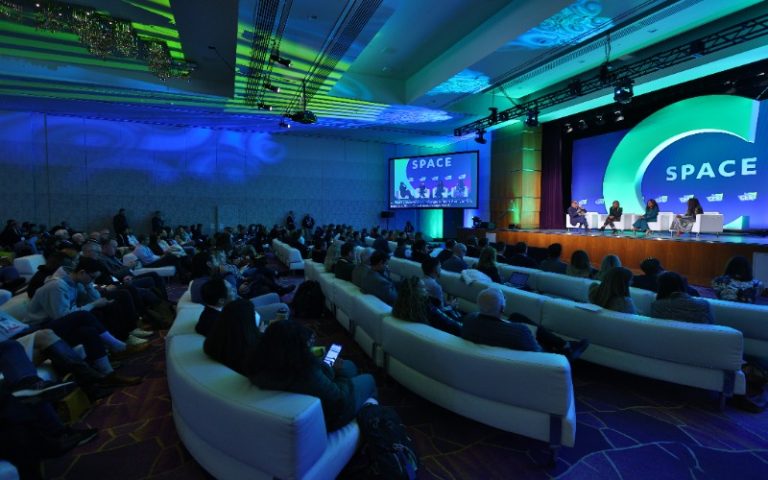CES, the world's most influential technology event since 1967, returned with a bang last week in Las Vegas, Nevada. The event was centered around the theme “ALL ON” – a theme that proved to be a great way to kick off a truly pivotal year for technology and consumers. In fact, every major brand and technology company (except Apple!) came to preview the future. With a global audience (exhibitors from over 133 countries and over 200,000 participants), there is no other global concentration of technical knowledge like it.
The show has long been more than just a showcase of consumer electronics. It is now one of the world's most important automotive and mobility exhibitions, a health technology innovation hub, an investor exploration ground for startups and technology to scale up, and a meeting point where every business and brand is a technology company and a brand. For brands, CES is the premier showcase for innovative products, services, business models and experiences. It is where the latest models and releases enjoy their first appearance.

And this year, unsurprisingly, artificial intelligence is the overarching narrative. Generative AI in particular has sparked many discussions. The bigger idea was that rather than being something to be feared, AI should be embraced. Yes, it will replace some functions, like any new and improved technology. But more importantly, it will increase and amplify our ability to work better and smarter. It will relieve us from boredom and accelerate our ability to think, dream and execute faster. Artificial intelligence has been used for many years because it enables deep thinking and connection between data and intelligent computation. But in 2024, we will see real results as it is used more widely by consumers and industries through products, services and experiences.
For example, in one statistic cited by Walmart, 80% of all consumer service interactions are now handled by AI-powered chatbots and chatbots. It has become clear that after-sales service and consumer experience will be handled almost entirely by LLM algorithms that support more efficient, effective, personalized and immediate results. If brands deliver their experience with transparency, data protection, and accountability, consumers will be happy to engage with query response and automated service.
Considering the presence of brands in general, the focus of CES has always been consumer technology. Therefore, it was no surprise that brands including Google, LG, Samsung, Sony, Hisense and Siemens had a very visible presence and footprint on the exhibits. Apple has never had a direct presence at CES, but it has cast an influential shadow over many existing industry sectors and innovations. Meanwhile, Microsoft has seemed ubiquitous and has partnered with many leading brands to reshape the business. Amazon has also been at the forefront of logistics, translating into a massive presence in areas from mobility and supply chain management to consumer smart homes and living.
This year, L'Oréal was the first beauty brand to keynote at CES and provided a compelling perspective on how technology and beauty can intersect to be more sustainable and inclusive. Siemens' industrial transformation keynote discusses how AI is now accessible to everyone through its partnership with Microsoft and accessible code applications. Hyundai showcased for the first time how artificial intelligence and autonomous robotics are evolving to transform how things are built on an industrial scale, with a particular look at heavy construction and mining. Microsoft debuted with Samsung how it will add AI Key to the core functions of laptops and phones to demonstrate how consumers can now use AI to augment and improve content creation. Microsoft CEO Satya Nadella was on stage with Walmart (which had a large display area showcasing the future of retail) to demonstrate how collaboration and partnership lead to direct, seamless shopping experiences for consumers and workforce partners.
The real story from CES 2024 was how advanced connectivity provided by next-generation data/cloud and microprocessing can be combined with increasing computing power and powerful chips to fuel AI and immersive experiences, leveraging real-time data analytics. How edge and sensor technology delivers unparalleled real-world data versus dual digital datasets and is harnessed to inform predictive machine learning for personalization. When applied to smart devices, homes and cities, this level of interactivity and connectivity opens up a whole new world of possibilities.
This will be the era in which communication between companies will take hold on an industrial level. In addition, B2S (Business for Society) is expected to begin adapting and implementing technological solutions to address issues such as pollution, climate change, sustainability, disaster prevention and relief, global food demand, social impact issues and increasing international cooperation.
CES has made clear that AI and sustainability are on the minds of the world's largest organizations and brands – when making investments, identifying partnerships, and creating experiences. This reflected Interbrand's Arena thinking that the best companies are no longer specific to a specific category or sector, and brands should instead look to meet the needs of consumers and how they live their lives. A booth display from Siemens reflected this thinking, showing that today's brand strategy goes beyond categories or products and elevates and focuses on the value, experience and solutions that consumers and businesses want because of technology. At CES 2024, barriers to opportunity have been removed. It was clear that technology enables new ways of working, learning, doing and selling.

